In Washington, Big Law Partners Bring a Spirit of Resilience to the New Normal
Recently, I reached out to a collection of D.C.-based lawyers who offered glimpses of how they approach their practice in the coronavirus age and the silver lining they're finding in all of this. Here's what they shared.
March 30, 2020 at 04:21 PM
19 minute read
 Cherry blossom trees in full bloom at the tidal basin in Washington, D.C., on March 22, 2020. (AP Photo/Jose Luis Magana)
Cherry blossom trees in full bloom at the tidal basin in Washington, D.C., on March 22, 2020. (AP Photo/Jose Luis Magana)
In the Washington metro area, the sun is shining on a Monday afternoon. The sky has settled on a shade that's somewhere between cerulean and periwinkle. And the birds are active and chirping, the same way they would be on any delightful spring day prior to the coronavirus pandemic. It's almost as if they are spurring us onward, echoing the spirit of Matthew Wilder's 1984 hit, "Break My Stride."
"Ain't nothing going to break my stride/
Nobody gonna slow me down/
Oh no. I've got to keep on moving."
In the D.C. legal community, the lawyers too keep moving, responding to the pandemic with creativity and resilience. The practice of law goes on, and in many cases, it's ramping up, in response to new, pandemic-related client demands. Lawyers are adjusting, bending their usual approach to present day exigencies: logging billable hours from the dining room table, interfacing with teams on video conferencing and hoping that a child or a pet doesn't Kanye West a crucial moment with a client.
Recently, I reached out to a collection of D.C.-based Big Law partners who offered glimpses of how they approach the new normal and the silver lining in all of this. Here's what they shared.
Jessica Ellsworth, Hogan Lovells
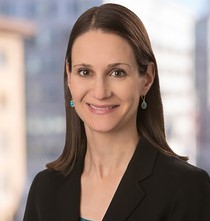 Jessica Ellsworth, Hogan Lovells.
Jessica Ellsworth, Hogan Lovells.How is the "new normal" in the wake of the COVID-19 pandemic impacting your practice?
I crossed "appellate argument during pandemic" off my bucket list a few days ago, and I just had two more arguments set for next month that I anticipate are likely to be telephonic as well. The appeals courts seem committed to keeping things running, and my practice hasn't slowed down. The commuting time I am saving is getting put to good use helping my kids figure out whether the wolverine or the Tasmanian devil would win the ultimate showdown.
What has been the most difficult aspect of adjusting?
Finding somewhere to hide from my kids when on conference calls. I'm trying to avoid imitating the professor whose kids crashed his video interview with the BBC. Luckily all of our firm's technology has worked smoothly so far for me, and even my luddite self has embraced Zoom as a way to stay connected.
What are you learning the most? And what's the silver lining for you?
Two things come immediately to mind. The first is how much I miss seeing my colleagues, both those I work with every day and those I just pass in the hall. The second is time management on steroids: I'm learning how to plant an herb garden with kids in the morning, edit a brief for the afternoon, fill in a 100s chart and do a MadLib before dinner, support a local restaurant by ordering take out, and finish editing the brief after bedtime.
Jessica Ellsworth is a partner in Hogan Lovells' appellate practice. She has argued over 60 cases in 11 federal courts of appeal and many state high courts.
Anand Sharma, Finnegan
 Anand K. Sharma, Finnegan.
Anand K. Sharma, Finnegan.How is the "new normal" in the wake of the COVID-19 pandemic impacting your practice?
Necessity is the mother of invention, and today, there is no shortage of need. As IP lawyers in this "new normal," we've had to pivot, almost daily, in response to judicial and administrative changes in procedure, and for some on our team, there are significant daily changes to home life as well. Flexibility has been the key. Our availability and accessibility remain critical, but we've had to shift our emphasis away from face-to-face contact, to now leveraging the best technological mediums to maintain that personal touch.
What has been the most difficult aspect of adjusting?
A virtual practice comes with some limitations. Travel is limited, there are no impromptu visits to another lawyer's office, and on the rare occasion, technology may let us down, whether it's a video freezing or a dropped call. Patience and resilience are key, and so too is a good sense of humor, particularly when the occasional child or pet demands attention during a call!
What are you learning the most? And what's the silver lining for you?
Now that we all are largely working from home, we are getting to know each other and our clients in a more intimate way. The lines between personal and professional are blurring, which gives us better insight into the strength of the relationships we've built.
This adjustment has also reinforced our firm's commitment to teamwork. We've always been a tight-knit firm, but we've had to rely on each other in unexpected ways. On short notice, we were forced to adjust the way we normally work, but surprising even to me is that the transition has been quite seamless.
Anand Sharma, managing partner of the IP law firm Finnegan, tries cases before judges and juries across the country, and manages patent portfolios for several multibillion-dollar companies.
Brigida Benitez, Steptoe & Johnson
How is this "new normal" in the age of the COVID-19 pandemic impacting your practice?
Much of my practice is international, so the suspension of travel has created some challenges. I am representing clients in investigations in which witness interviews are being conducted remotely. We have to adapt to that environment. Luckily, I've done that in the past so I'm comfortable with the process and Steptoe's technology and resources have made it easy to adapt. But it's not the same, so you have to be prepared.
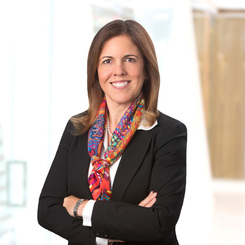 Brigida Benitez, with Steptoe & Johnson.
Brigida Benitez, with Steptoe & Johnson.What's been the most difficult aspect of adjusting?
I think the most difficult aspect of adjusting to this "new normal" is missing the camaraderie of my colleagues. I like to stay engaged with my teams and working remotely makes it more difficult, though not impossible. You just have to be more proactive and thoughtful to make sure you stay connected. Virtual coffees and happy hours have now become popular.
What are you learning the most? And what's the silver lining for you?
I'm used to traveling and being on the road, so working remotely is not that unusual. Just a few weeks ago, I was in Uruguay and Argentina on work matters, yet I stayed connected and worked seamlessly on other issues. (I returned before any of the international travel restrictions.) It's been reassuring to our clients that, as a firm, we have quickly adapted to teleworking so that we can continue to serve their needs.
Brigida Benitez, past president of the DC Bar, is a partner at Steptoe & Johnson who focuses on internal investigations and complex litigation. She previously served as chief of the Office of Institutional Integrity of the Inter-American Development Bank.
Mark A. Perry, Gibson, Dunn & Crutcher
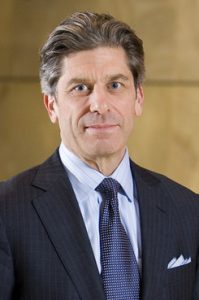 Mark Perry, Gibson Dunn.
Mark Perry, Gibson Dunn.How is the "new normal" in the wake of the COVID-19 pandemic impacting your practice?
The day-to-day work of the appellate practice group has probably changed less than others. Appellate lawyers tend to work in small teams, and we are often separated by geography from each other, our clients and the courts. And with the exception of oral argument, we typically don't have to be in any particular place. With a laptop and a fast internet connection, I can do at home almost everything I can do in the office.
What's been the most difficult aspect of adjusting?
The logistics of two adults, four teenagers, and two dogs coexisting under the same roof for days on end are daunting. More existentially, uncertainty takes a heavy toll. We don't know yet how the pandemic will affect society, the business environment, or the practice of law. And of course I am concerned for the health of my family, friends, colleagues and clients. These are additional stressors in an already demanding profession.
What are you learning the most? And what's the silver lining for you?
We are all learning together how to provide material, emotional and informational support to one another at a distance—including mentoring our associates, coordinating with our partners, and helping our clients. As an eternal optimist, I am buoyed by stories of compassion and courage in the face of adversity, and I have both confidence and hope that we humans will emerge from this crisis not just stronger but better.
Mark A. Perry is a partner in Gibson, Dunn & Crutcher's Washington, D.C., office and co-chair of the appellate and constitutional law practice group.
Anthony Pierce, Akin Gump
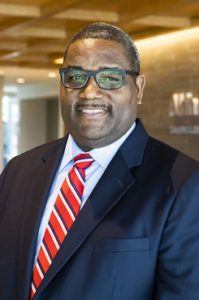 Anthony Pierce, Akin Gump.
Anthony Pierce, Akin Gump.How is this "new normal" in the age of the COVID-19 pandemic impacting your practice?
With the courthouses closed or nearly closed there isn't much courtroom time, which is the best part of what we do as litigators, but cases still have to be litigated so briefs, discovery disputes and counseling to help avoid litigation continues. And a lot of COVID-19 questions!
What has been the most difficult aspect of adjusting?
Not having face time with your clients and colleagues. Video is great, but it is not the same. We are learning that direct human interaction at work and play will always be valuable.
What are you learning the most? And what's the silver lining for you?
You certainly get closer to your family when working remotely, and that's important to a well-balanced and successful life.
Anthony Pierce is a litigation partner at Akin Gump Strauss Hauer & Feld and partner in charge of the firm's Washington, D.C., office.
Jodi Daniel, Crowell & Moring
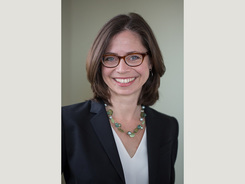 Jodi Daniel, Crowell & Moring.
Jodi Daniel, Crowell & Moring.How is the "new normal" in the wake of the COVID-19 pandemic impacting your practice?
Two weeks ago, I had been spending a significant amount of time advising clients on new health data interoperability regulations, but many companies have put this on hold as they deal with changes resulting from COVID-19. I have been advising a number of health care and technology companies that have been trying to help public health and health care delivery efforts through the use of technology, including data analytics, health information exchange, and consumer engagement. I have fielded a lot of questions related to HIPAA and use of telehealth, including interpreting the new guidance from HHS.
What has been the most difficult aspect of adjusting?
Personally, it has been difficult working from home while schools are closed. It seems as though the separation of work and home life has gotten more blurred just as the workload has increased. For our team, we have been adjusting workloads given changes in availability resulting from work that has been put on hold for some and that has been escalating for others … while also being thoughtful about caregiving duties and other complications that people face.
What are you learning the most? And what's the silver lining for you?
I have found that I have gained a deeper understanding of, and partnership with, some of my clients as they are reaching out to address new problems and issues that are impacting their business. While the distance is challenging for collaboration, I have found that my team has worked harder to stay connected and it has led to more collaboration and teamwork. And it is also nice to have lunch with my kids!
Jodi Daniel is a partner in Crowell & Moring's health care group and leads the firm's digital health practice. Prior to joining Crowell & Moring, Jodi served for 15 years in senior roles at the Department of Health and Human Services.
Erica Williams, Kirkland & Ellis
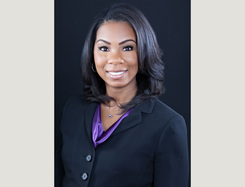 Erica Williams, Kirkland & Ellis.
Erica Williams, Kirkland & Ellis.How is the new normal impacting your practice?
I focus my practice on internal investigations, government investigations and crisis management. Over the past few weeks, the crisis management aspect of my practice has increased due to the pandemic. I have been counseling clients throughout the country on matters that are critical to their financial well-being and that of their employees. Solving problems is what I do, but the scope and nature of the pandemic has presented new and unprecedented challenges.
What's been the most difficult aspect of adjusting?
I find myself working all the time and have had difficulty carving out time for my personal and family life. Work-life balance is always difficult, but when a large percentage of people around the world are working from home on flexible schedules, it is hard to stop working.
What are you learning the most? And what's the silver lining for you?
I have become more adept at leveraging technology to stay connected with my clients and colleagues. Clients are increasingly providing their employees with the option to work remotely and are using video conference technology to foster more collaborative working environments. I believe this experience will help law firm partners become more comfortable hosting meetings via video conference rather than by conference call.
Erica Williams, a partner in Kirkland & Ellis' government, regulatory and investigations group, focuses on internal investigations and defense of companies and individuals in government investigations.
Alice Fisher, Latham & Watkins
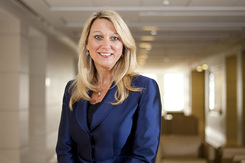 Alice Fisher, Latham & Watkins.
Alice Fisher, Latham & Watkins.How is this "new normal" in the age of the COVID-19 pandemic impacting your practice?
I've been helping clients quickly digest how rapid developments apply to their businesses. Sometimes those fall into my area, and sometimes it's a matter of connecting clients with other partners within Latham who work in those areas. I've also spent time talking with and supporting our associates, many of whom haven't experienced a major market event like this in their professional life. I'm lucky to have great colleagues and a culture that supports teamwork, and is focused on supporting each other and clients to precisely meet their needs.
What's been the most difficult aspect of adjusting?
I miss seeing my colleagues and my clients—and even folks in the government on the other side of the table—in person. Relationships are so important and I realize how much I thrive on those personal connections. I also feel the pain of the very difficult decisions that our clients are confronting, and that's an adjustment that is different in scope than usual. Latham is fortunate in that our transition to remote work has been somewhat seamless, and enabled a lot of connections, but it doesn't overcome the very real business and personal challenges that many face.
What are you learning the most? And what's the silver lining for you?
Like many people, the opportunity to spend more time with my husband and two sons, without other in-person obligations, is a silver lining. I've also been so impressed at the strength, commitment and quality of my colleagues and everyone's willingness to pitch in for the greater good. It has been truly a great experience to see our flexibility, creativity and commitment in action. We're all in this together.
Alice Fisher is a white-collar partner at Latham & Watkins. She previously served on the firm's executive committee and as Washington, D.C., office managing partner.
Sharon Masling, Morgan Lewis
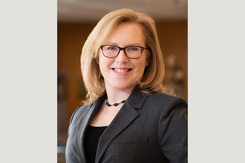 Sharon Masling, Morgan Lewis.
Sharon Masling, Morgan Lewis.How is the "new normal" in the wake of the COVID-19 pandemic impacting your practice?
My entire practice has changed. I have gone from working with a handful of colleagues on workplace culture consulting to coordinating the work of approximately 100 attorneys as we respond to any and every COVID-19 employment-related question. The issues range from temperature screening and medical inquiries under the ADA, to paid sick leave and family leave under the FFCRA, to remote work and wage-and-hour issues, to furloughs and layoffs and everything in between. And now, instead of going to the office in my business clothes, I get to work at my dining room table in my pajamas.
What has been the most difficult aspect of adjusting?
The pace and the hours are relentless. Everything is—understandably—"urgent." Our clients don't have time for well-researched, in-depth legal analyses; they need pragmatic, workable solutions, and they need them now. On top of that, the law is changing almost daily. Congressional legislation is passed in days; state orders shutting down businesses are issued without warning; agency guidance changes unexpectedly; and employers are desperately trying to stay afloat.
What are you learning the most? And what's the silver lining for you?
The silver lining to all of this is getting to know and work with an extraordinary team of colleagues. I am awed, every day, by their smarts, their dedication, their commitment and their willingness to jump in and lend a hand, wherever and however necessary. After more than 25 years of practicing law (primarily in the government and public interest), this is my first time practicing in a big law firm, and I could not have landed in a better place.
Sharon P. Masling is an employment partner and director of workplace culture consulting at Morgan, Lewis & Bockius. She previously served at the EEOC for eight years.
Justin Shur, MoloLamken
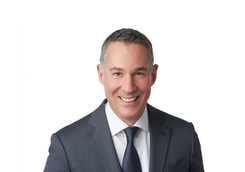 Justin Shur, MoloLamken.
Justin Shur, MoloLamken.How is this "new normal" in the age of the COVID-19 pandemic impacting your practice?
We are preparing for a rise in enforcement activity. Congress is on the verge of passing a $2 trillion bill providing relief for hard-hit industries, which creates a special inspector general. If past is prologue, this will lead to a wave of new investigations. Following the 2008 financial crisis, Congress authorized the purchase of billions of dollars of "troubled assets." As with the COVID-19 legislation, it also created a special IG which still exists today and is responsible for hundreds of enforcement actions.
What's been the most difficult aspect of adjusting?
The absence of in-person communication has been difficult. Any time there is a crisis, it is important to connect with clients and colleagues—to check in and see how they're doing, provide them with necessary support, and help them navigate challenges. Until now, we have always done that in person. While there is no replacement for in-person meetings, by necessity I have become an avid user—and big fan—of the various apps that, despite social distancing, allow people to feel connected through face-to-face communication, which is critical during this time.
What are you learning the most? And what's the silver lining for you?
While I am not surprised, it is impressive to see people come together and rise to the occasion when a crisis emerges. Our team has always been a close-knit group. But over the last few weeks it has been inspiring to see colleagues collaborate in new and creative ways, to go above and beyond in providing support to our clients, our community, and to one another. Our team will be all the stronger for it.
Justin Shur is a former federal prosecutor and partner at MoloLamken. He specializes in representing clients in white-collar criminal and regulatory enforcement matters.
Daniel Chung, Gibson, Dunn & Crutcher
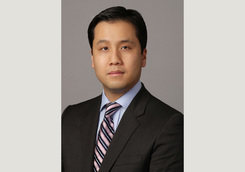 Daniel Chung, Gibson, Dunn & Crutcher.
Daniel Chung, Gibson, Dunn & Crutcher.How is this "new normal" in the age of the COVID-19 pandemic impacting your practice?
I have not felt a significant impact yet. My current litigation, enforcement and internal investigation matters are forging ahead. And the emerging issues of the pandemic have broadened the need for counseling as clients prepare for potential going-forward priorities of the DOJ, SEC and other enforcement authorities.
What's been the most difficult aspect of adjusting?
I spend a significant amount of time on the road, so the biggest shift has been the restrictions on travel. But my teams and our clients have done a terrific job of communicating, coordinating, staying on task, and getting things done. And it certainly helps that my kids are cooperating at home!
What are you learning the most? And what's the silver lining for you?
I am learning that in these most unusual of times my colleagues are able to continue to do their jobs at a very high level. And my bonds with clients are getting closer as we work together to get through unprecedented issues and prepare for the world coming out of the pandemic.
Daniel P. Chung is a litigation partner in Gibson, Dunn & Crutcher's Washington, D.C., office and a former federal prosecutor.
NOT FOR REPRINT
© 2025 ALM Global, LLC, All Rights Reserved. Request academic re-use from www.copyright.com. All other uses, submit a request to [email protected]. For more information visit Asset & Logo Licensing.
You Might Like
View All
Fenwick and Baker & Hostetler Add DC Partners, as Venable and Brownstein Hire Policy Advisers
2 minute read
Signaling Growth Goals, Some Law Firms Promote Record Partner Classes
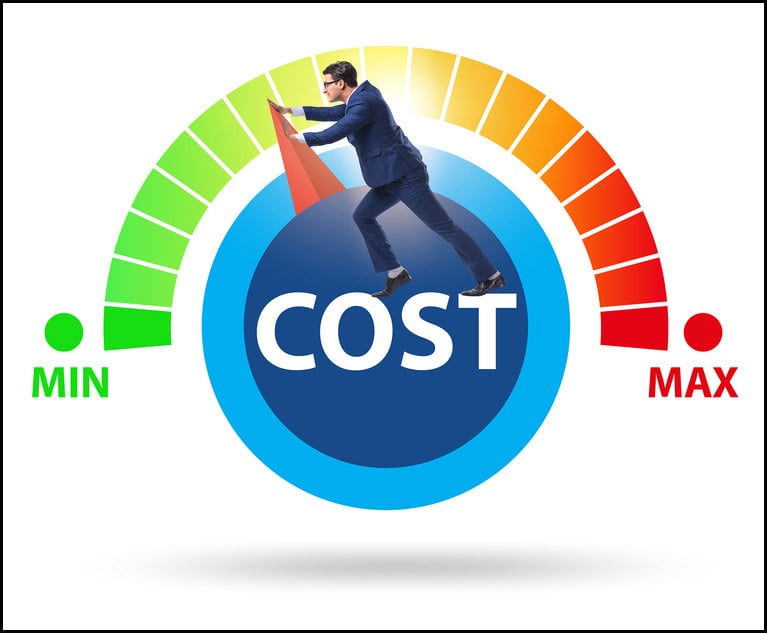
Legal Departments Dinged for Acquiescing to Rate Hikes That 'Defy Gravity'
4 minute read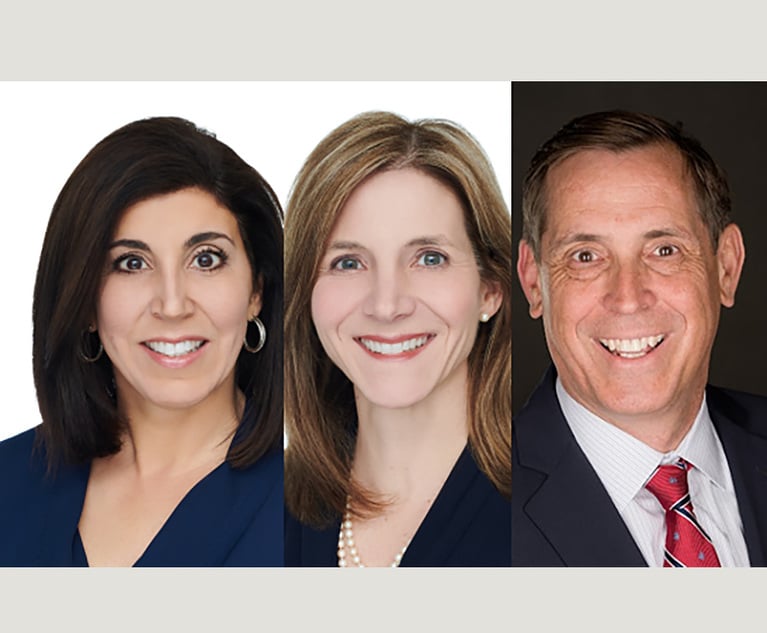
DC's Birchstone Moore Combines With Chicago-Founded Wealth Planning Firm
3 minute readLaw Firms Mentioned
Trending Stories
- 1'It's Not Going to Be Pretty': PayPal, Capital One Face Novel Class Actions Over 'Poaching' Commissions Owed Influencers
- 211th Circuit Rejects Trump's Emergency Request as DOJ Prepares to Release Special Counsel's Final Report
- 3Supreme Court Takes Up Challenge to ACA Task Force
- 4'Tragedy of Unspeakable Proportions:' Could Edison, DWP, Face Lawsuits Over LA Wildfires?
- 5Meta Pulls Plug on DEI Programs
Who Got The Work
Michael G. Bongiorno, Andrew Scott Dulberg and Elizabeth E. Driscoll from Wilmer Cutler Pickering Hale and Dorr have stepped in to represent Symbotic Inc., an A.I.-enabled technology platform that focuses on increasing supply chain efficiency, and other defendants in a pending shareholder derivative lawsuit. The case, filed Oct. 2 in Massachusetts District Court by the Brown Law Firm on behalf of Stephen Austen, accuses certain officers and directors of misleading investors in regard to Symbotic's potential for margin growth by failing to disclose that the company was not equipped to timely deploy its systems or manage expenses through project delays. The case, assigned to U.S. District Judge Nathaniel M. Gorton, is 1:24-cv-12522, Austen v. Cohen et al.
Who Got The Work
Edmund Polubinski and Marie Killmond of Davis Polk & Wardwell have entered appearances for data platform software development company MongoDB and other defendants in a pending shareholder derivative lawsuit. The action, filed Oct. 7 in New York Southern District Court by the Brown Law Firm, accuses the company's directors and/or officers of falsely expressing confidence in the company’s restructuring of its sales incentive plan and downplaying the severity of decreases in its upfront commitments. The case is 1:24-cv-07594, Roy v. Ittycheria et al.
Who Got The Work
Amy O. Bruchs and Kurt F. Ellison of Michael Best & Friedrich have entered appearances for Epic Systems Corp. in a pending employment discrimination lawsuit. The suit was filed Sept. 7 in Wisconsin Western District Court by Levine Eisberner LLC and Siri & Glimstad on behalf of a project manager who claims that he was wrongfully terminated after applying for a religious exemption to the defendant's COVID-19 vaccine mandate. The case, assigned to U.S. Magistrate Judge Anita Marie Boor, is 3:24-cv-00630, Secker, Nathan v. Epic Systems Corporation.
Who Got The Work
David X. Sullivan, Thomas J. Finn and Gregory A. Hall from McCarter & English have entered appearances for Sunrun Installation Services in a pending civil rights lawsuit. The complaint was filed Sept. 4 in Connecticut District Court by attorney Robert M. Berke on behalf of former employee George Edward Steins, who was arrested and charged with employing an unregistered home improvement salesperson. The complaint alleges that had Sunrun informed the Connecticut Department of Consumer Protection that the plaintiff's employment had ended in 2017 and that he no longer held Sunrun's home improvement contractor license, he would not have been hit with charges, which were dismissed in May 2024. The case, assigned to U.S. District Judge Jeffrey A. Meyer, is 3:24-cv-01423, Steins v. Sunrun, Inc. et al.
Who Got The Work
Greenberg Traurig shareholder Joshua L. Raskin has entered an appearance for boohoo.com UK Ltd. in a pending patent infringement lawsuit. The suit, filed Sept. 3 in Texas Eastern District Court by Rozier Hardt McDonough on behalf of Alto Dynamics, asserts five patents related to an online shopping platform. The case, assigned to U.S. District Judge Rodney Gilstrap, is 2:24-cv-00719, Alto Dynamics, LLC v. boohoo.com UK Limited.
Featured Firms
Law Offices of Gary Martin Hays & Associates, P.C.
(470) 294-1674
Law Offices of Mark E. Salomone
(857) 444-6468
Smith & Hassler
(713) 739-1250










